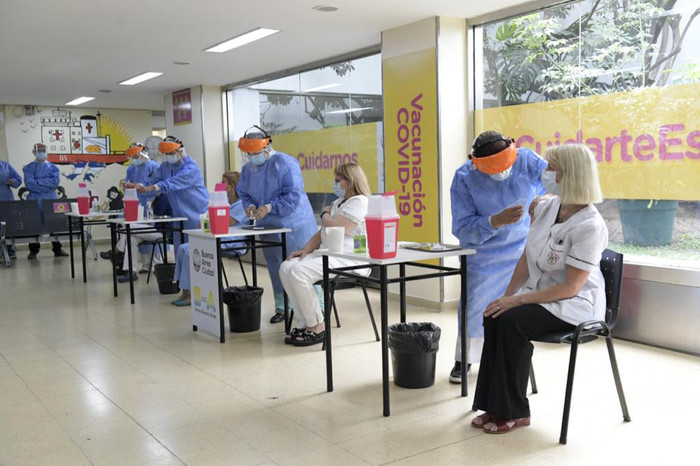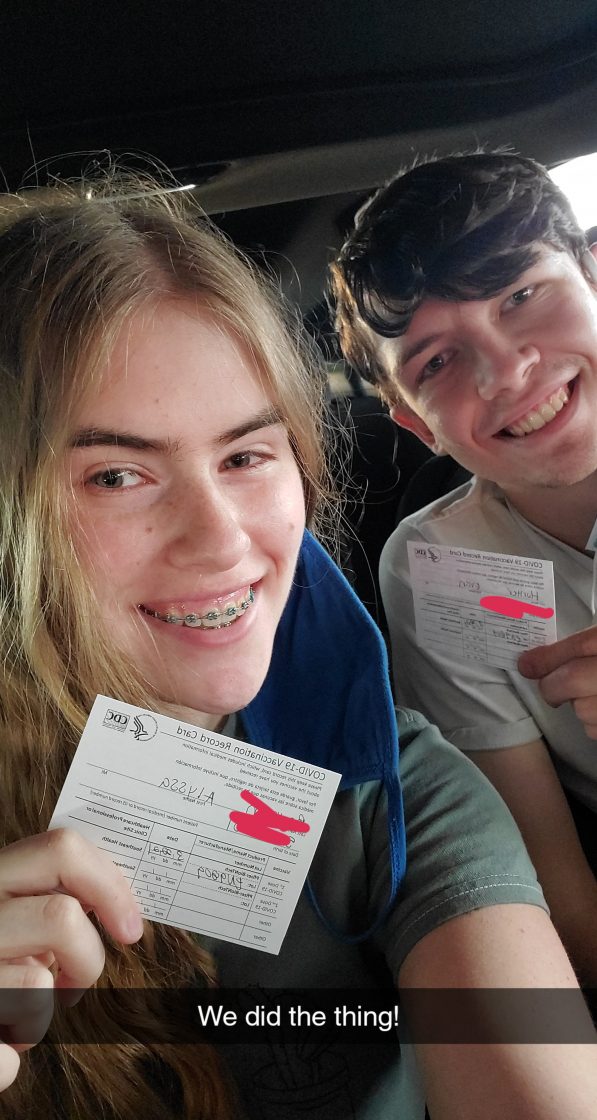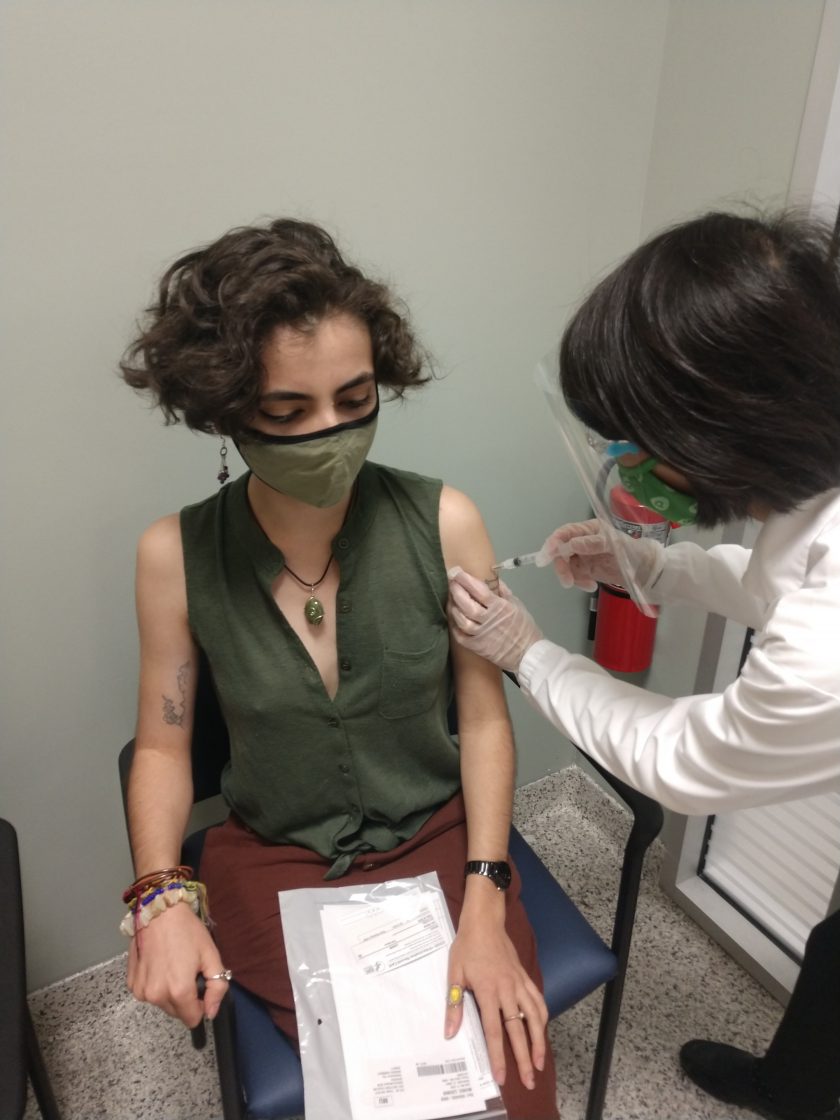On March 15, Governor Ron DeSantis added Florida educators to the list of eligible for vaccination, providing a loophole for many students employed by New College and enabling them to receive the vaccine with pay stubs from the college. This was the first large-scale wave of student vaccinations campus has seen. As of Monday, March 29 anyone aged 40 and up, healthcare workers, people determined to be vulnerable by a doctor and long-term care residents and staff are all eligible for the COVID-19 vaccine in Florida.
Vaccines are rapidly becoming more available for wider expanses of people and on March 21, there were reportedly 5,475,209 people fully vaccinated in Florida, roughly 25% of the state population. Country-wide anticipation of possible vaccines stretches back to the beginning of the pandemic in early 2020, so things are looking up now that more and more people are being vaccinated. On a smaller scale, talk of a “normal” semester is circulating as New College hopes to offer fully in-person classes for Fall 2021.
Quick adjustments were made in March 2020 to accommodate CDC guidelines and ensure the safety of every student, staff and faculty member. Professor of Anthropology and Environmental Studies Erin Dean is currently teaching Conservation and Indigenous Knowledge as a hybrid class, meaning she meets with her class in person by the bay for one class and online for one class each week.
“I think the biggest hardship of the CDC guidelines was the need to limit the class size more than I would have liked,” Dean said. “I had to cap out many students I wanted to include in order to meet social distancing requirements, even in the outdoor space.”
The outdoors have provided a bit of a challenge for Dean’s class, as she faces issues that would not exist inside a traditional classroom space.
“While I actually really enjoy teaching in the outdoor classroom, there are certainly some challenges,” Dean said. “The difficulties hearing each other through masks and distance are compounded by the environmental factors—planes, mowers, sometimes even the wind. But the students have had such great attitudes about it and it is worth every inconvenience to meet in person.”
Dean does plan to teach in person in the fall.
Third year and Counseling and Wellness Center (CWC) Representative Alexandra Conte hopes to offer more vaccination resources next fall as well, including a supply of the Johnson & Johnson single-dose vaccination kept in the CWC for students who have not yet been vaccinated.
“We’ve definitely talked about trying to get vaccines on campus, at least by next year,” Conte said. “Since everything is opening up, it probably will be by that time.”

Conte is very enthusiastic about the rate at which vaccinations are going.
“I think that it’s going fast,” Conte said. “Before when they were just doing assisted living, it was very slow to roll out. And I think that because there’ve been a lot of shortages, or there’ve been people that just aren’t showing up to their appointments. They’re desperate to get vaccines in the arms.”
Conte mentioned the website Dr. B and the Florida Department of Health as good resources to find out vaccine eligibility and locations.
“Currently, students who have been vaccinated have done this in one of three ways, the first being a physical letter that declares the student medically vulnerable,” Conte said. “The second has been through work, since we definitely have students who work in healthcare or they work for the college and they are eligible. The third is kind of by luck. Some people have just gone and showed up at pharmacies. If you ask, sometimes they’ll just put you on a list and they’ll call you or vaccinate you there.”
The third scenario applies to third-year Eliot Greene, who made a forum post on March 14, saying, “If you go to pharmacies, ask them if they have any extra vaccines and they will probably give it to you if you’re an essential worker or etc. People sign up for appointments and then never show up, meaning they have leftover vaccines that they will have to destroy if not used by that day.”
Second-year Bella Shuler added to the post, “I am a part of a Facebook group that goes more into detail by county for this, but usually, if you call or show up to a pharmacy (CVS, Walmart, Publix) an hour to 30 minutes before they close you can ask if there is a ‘waste avoidance list’ or if they have any leftover vaccines, you may be able to get one. Of course, when calling these places they are more inclined to give the leftovers to those who are at risk, but from what I’ve read they just really want to make sure none go to waste.”
Other students did not have such an easy time getting vaccinated, such as second-year Alyssa Boynton, who drove to Dothan, Alabama to receive her vaccine since she is an out-of-state student and therefore not eligible as a Florida resident.

“My partner Evan and I were vaccinated on March 22,” Boynton said. “I’m from Minnesota and Evan is from Oregon, so neither of us are allowed to be vaccinated in the state of Florida as we aren’t legal residents. It is a really awful policy for out of state students, and we’re really lucky to have been able to drive to Alabama, because I know many students don’t have that option. We were able to be vaccinated because we’re both employees of the college, but at the place we went (Southeast Health in Dothan), they didn’t even ask for our pay stubs. They took our IDs and filled out the cards, no questions asked.”
Third-year Leo Muñoz got their vaccine at a Publix pharmacy on March 17.

“I was thoroughly knocked on my ass for the next couple days, but not in a bad way,” Muñoz said. “I was Body Tired, which as it turns out, is different from the Depression Tired I’ve been feeling this entire pandemic. Honestly, though? I didn’t necessarily feel capital-B Bad. My body was just focused on making antibodies, but it wasn’t being attacked per se.”
Thesis-student Cassandra Parvaz has a bit of an unusual story. Parvaz lives locally off-campus and quarantined for 364 days—as in she literally did not leave her apartment during that time—before receiving her first dose of the vaccine.

“I got the Pfizer vaccine at Walgreens,” Parvaz said. “I have only had one shot so far. The initial injection wasn’t bad and I had no immediate side effects; however, over the course of the next several hours, my existence slowly began to center around the growing pain at the injection site. I had to take Ibuprofen just to be able to sleep that night. The next morning, if I recall correctly, I felt a bit sick to my stomach, but that only took an hour or so to clear up.”
All ailments aside, Parvaz is excited to get the next dose so she can finally rejoin society.
“It was totally worth it,” Parvaz said. “I’m looking forward to the next one.” Starting Monday, April 5, all Florida residents will be eligible for the vaccine. Those who are not already eligible for the vaccine may pre-register here and they will be contacted when an appointment is available.


Pingback: New College walk-in vaccine clinic a huge success – The Catalyst
Pingback: PCPreview: Cyberfuturism meets the present as graduation COUP returns in full force – The Catalyst